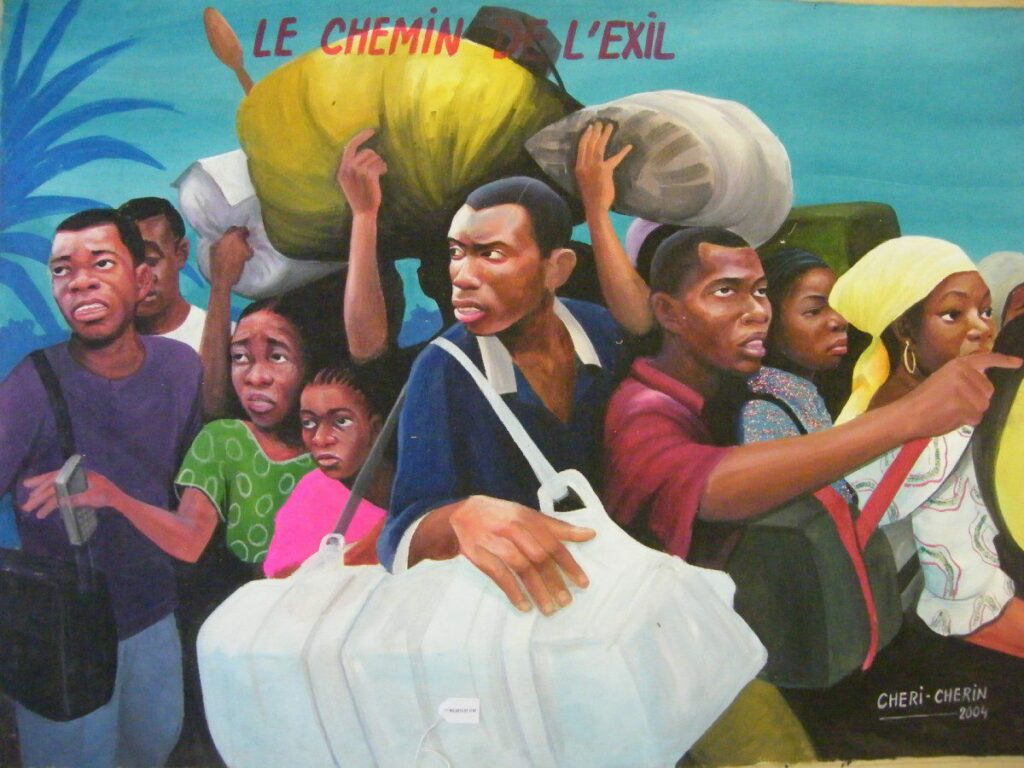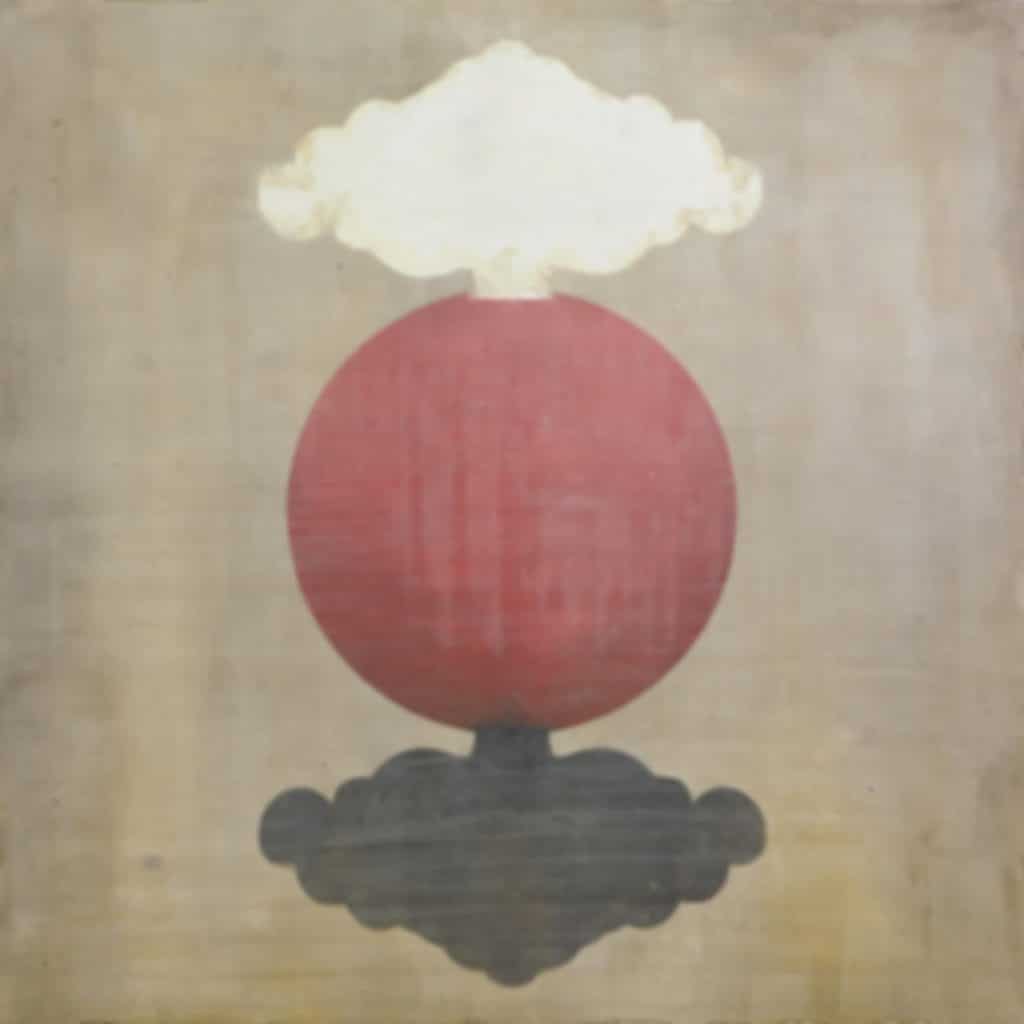Dear friends,
Greetings from the desk of Tricontinental: Institute for Social Research.
Donald Trump returned to the White House with a loud thump. His staff threw executive order upon executive order on his desk, which he signed with a flourish and then got on the phone to bark orders at the Danes and the Panamanians and the Colombians, demanding this, that, and the other thing, that thing, this thing, the things that he feels that the United States deserves.
In Trump’s history, the U.S. once had a Golden Age. He is now the symbol of its anxiety. His slogan, ‘Make America Great Again’, does not disguise the worry about its collapse: Make it great again, he says, because it no longer is great, and it should be great, and I will make it great. His followers know that at least he has been honest in his assessment of the decline. Many of them can feel it in their bank accounts, too depleted to feed their families, and they can see it in the crumbled infrastructure that surrounds them. Crystal methamphetamine and fentanyl numb the ugly pain while the new songs of the United States bemoan the uncertainty, how even their ‘dreams are wearing thin’. A passenger jet collides with an army helicopter, and Trump ascends to the podium of the White House pressroom and blames the accident on diversity hirings. Geniuses need to be at the air traffic control computer, he says. But the man who was at the desk that night was doing the job of two because of ruthless cuts that began decades earlier, with Ronald Reagan’s 1981 union decertification of the Professional Air Traffic Controllers Organisation (PATCO). It was Reagan who first introduced the world to Trump’s slogan, ‘make America great again’.
Reality is ugly. It is far easier to indulge in fantasy. Trump is the magician that wields that fantasy. Everything has deteriorated—not because of the attack on trade unions, the austerity that followed, or the rise of the tech bros whose share of the social surplus is outrageous and who have been on tax strike for decades. Trump’s fantasy is incoherent. How else could Trump have elevated Elon Musk, the symbol of the decline, to be the agent of transformation for a new Golden Age?

Chéri Chérin (Democratic Republic of the Congo), Le chemin de l’exil (The Path to Exile), 2004.
There is madness, yes. But imperialism has always been tinged with madness. Hundreds of millions of people from the Americas to China have been either killed or subdued so that a small part of the world—the North Atlantic—could enrich itself. That is madness. And it worked. It continues to work, to some extent. The neocolonial structure of capitalism remains intact. When a country in Africa, Asia, Latin America, or the Pacific Islands tries to assert its sovereignty, it is defenestrated. Coups, assassinations, sanctions, theft of wealth—these are just a few of the instruments used to damage any attempt at sovereignty. And this neocolonial structure is maintained because of the international division of humanity: some people continue to think that they are superior to others. In our Tricontinental study Hyper-Imperialism, we showed that North Atlantic Treaty Organisation (NATO) Plus countries account for over 74% of global military spending. While China accounts for 10% and Russia 3%, we nonetheless hear that it is China and Russia that are the threats, rather than NATO, which, led by the United States, is in fact the most dangerous institution in the world. NATO has destroyed entire countries (Yugoslavia, Afghanistan, and Libya, for instance) and now cavalierly threatens wars against countries that have nuclear weapons (China and Russia). Trump screams into the wind:
We want the Panama Canal.
We want Greenland.
We want to call it the Gulf of America.
Why should these demands come as a surprise? Panama was part of the Republic of Gran Colombia from 1821, when the region—under the leadership of Simón Bolívar (1783—1830)—broke from the Spanish Empire. Interest in building a canal through the isthmus of Panama to shorten the maritime routes between the Atlantic and Pacific Oceans and bypass the long journey around South America developed in the early 20th century, decades after Gran Colombia dissolved roughly into what is now Panama, Venezuela, Colombia, and Ecuador. In 1903, intrigue by France and the United States, and an intervention by the U.S. Navy, led to the secession of Panama from Colombia. The new Panamanian government gave the United States the Panama Canal Zone, which meant full control of the isthmus from 1903 to 1999, when the U.S. ‘returned’ the canal to Panamanian jurisdiction. Bear in mind that in 1989, when their former CIA asset Manuel Noriega no longer pleased them, the U.S. invaded Panama, seized Noriega, and incarcerated him in Miami, Florida, before releasing him to die in Panama City in 2017. The current president of Panama, José Raúl Mulino, first entered the government during the administration of Guillermo Endara, who was sworn in on a U.S. military base in 1989 as Noriega was taken to Florida. These men are intimately familiar with the proprietary way the United States looks at their land. It is not merely Trump who ‘wants’ the Panama Canal; it is the entire history of the U.S. treatment of Latin America—from the Monroe Doctrine to today—congealed in a phrase: we want the Panama Canal.
Memory is fragile. It is shaped repeatedly by half-truths and evasions. Beneath the surface reality of events lie deeper structures that influence how we see things. Old colonial ideas of Western benevolence and native savagery burst onto the surface at the time of interpretation.

Hafidh Al-Droubi (Iraq), Cubist Coffeehouse, 1975.
In 2004, a year after the United States and its allies began a war of aggression against Iraq, United Nations Secretary General Kofi Annan was interviewed by Owen Bennett-Jones of the BBC. Part of that conversation was about the war on Iraq:
Owen Bennett-Jones (OBJ): So, you don’t think there was legal authority for the war?
Kofi Annan (KA): I have stated clearly that it was not in conformity with the Security Council, with the UN Charter.
OBJ: It was illegal?
KA: Yes, if you wish.
OBJ: It was illegal?
KA: Yes, I have indicated it is not in conformity with the UN Charter. From our point of view and from the Charter point of view, it was illegal.
If the war was illegal, a war of aggression, then there should have been consequences. That was supposed to have been the purpose of the Nuremberg Tribunal of 1945—46. The excess deaths due to that war are now easily above a million people, with millions more negatively impacted by the destruction of infrastructure. If it were treated as a war of aggression, would its architects (George W. Bush and Tony Blair) be able to tour the world with their thousand-dollar smiles and their fancy bespoke suits? They neither faced International Criminal Court warrants, nor did their countries get taken to the International Court of Justice to face a hearing. Bush faced Muntadhar al-Zaidi’s shoes in 2008 when he went to Baghdad while Blair in the Iraq War Inquiry in 2012 was surprised by David Lawley-Wakelin, who stepped from behind a curtain and said, ‘This man should be arrested for war crimes’. Neither did the shoes hit Bush, nor was Blair arrested. Now, Blair has transformed himself into a peacemaker and Bush has shaped himself into an elder statesman.

Tetsuya Fukushima (Japan), Untitled (a red circle), 2015.
In Justice Robert Jackson’s three-hour opening statement at the Nuremberg Tribunal in 1945, he said:
Civilisation asks whether law is so laggard as to be utterly helpless to deal with crimes of this magnitude by criminals of this order of importance. It does not expect that you can make war impossible. It does expect that your juridical action will put the forces of international law, its precepts, its prohibitions, and, most of all, its sanctions, on the side of peace, so that men and women of good will, in all countries, may have ‘leave to live by no man’s leave, underneath the law’.
The line Justice Jackson quoted is from Rudyard Kipling’s poem ‘The Old Issue’ (1899), which was widely read in the 1940s. Two years before Jackson’s opening statement, British Prime Minister Winston Churchill quoted from the same poem in his Harvard University speech to make the point that there are, he said, ‘common conceptions of what is right and decent’ that endowed humans with ‘a stern sentiment of impartial justice… or as Kipling put it: “Leave to live by no man’s leave underneath the law”’. Churchill’s conception of what was ‘right and decent’ is summarised in his view, two decades prior, when, dealing with the Kurdish rebellion in northern Iraq, he wrote that he was ‘strongly in favour of using poisoned gas against uncivilised tribes’.

Zubeida Agha (Pakistan), Urban Landscape, 1982.
It would be worthwhile to shift emphasis from Nuremberg, which is relatively well known, to the lesser-known war crimes trials in Tokyo. There, the tribunal decided to punish military leaders whose troops committed atrocities. General Tomoyuki Yamashita commanded the Fourteenth Army Group of the Imperial Japanese Army, which operated largely in the Philippines. After he surrendered, General Yamashita was accused of permitting his troops to commit atrocities against civilians and prisoners of war. He was executed on 23 February 1946. Nobody claimed that General Yamashita personally inflicted pain on anyone: he was charged with ‘command liability’. In 1970, the lead military prosecutor at Nuremberg, Telford Taylor, reflected that ‘there was no charge that General Yamashita had approved, much less ordered these barbarities, and no evidence that he knew of them other than the inference that he must have because of their extent’. He was hung because, as the Tokyo tribunal noted, General Yamashita ‘failed to provide effective control of his troops as required by the circumstances’. Taylor wrote these words in his book Nuremberg and Vietnam: An American Tragedy, now long forgotten, in which he made the case not only to prosecute U.S. politicians and generals, but also U.S. aviators who bombed civilian targets in northern Vietnam because they participated in the Nuremberg era crime of ‘aggressive warfare’.

Mohammed al-Hawajri (Gaza, Occupied Palestine Territory), Untitled, from the series Été au Gaza (Summertime in Gaza), 2017.
In mid-January, Declassified UK’s Alex Morris confronted Israeli General Oded Basyuk on his way to meet with the UK’s Ministry of Defence and the Royal United Services Institute. General Basyuk has overseen the genocide of Palestinians and is being investigated for war crimes by the International Criminal Court. Yet, there he was on the streets of London on his way to meet the UK’s high officials in the military. ICC warrants against Israeli Prime Minister Benjamin Netanyahu were set aside by Poland and the United States, grinding the Nuremberg and Tokyo Tribunals into the dust. Sadly, the United Nations Principles to Combat Impunity (2005) are not legally binding.
Blood will flow down the avenues in some parts of the world. Champagne will fill the glasses in others.
In 1965, during the war between India and Pakistan, Faiz Ahmed Faiz wrote a poem called ‘Blackout’:
Since our lights were extinguished
I have been searching for a way to see;
my eyes are lost, God knows where.You who know me, tell me who I am,
who is a friend, and who an enemy.
A murderous river has been unleashed
into my veins; hatred beats in it.Be patient; a flash of lightning will come
from another horizon like the white hand
of Moses with my eyes, my lost diamonds.
Let us find our lost diamonds.
Warmly,
Vijay

